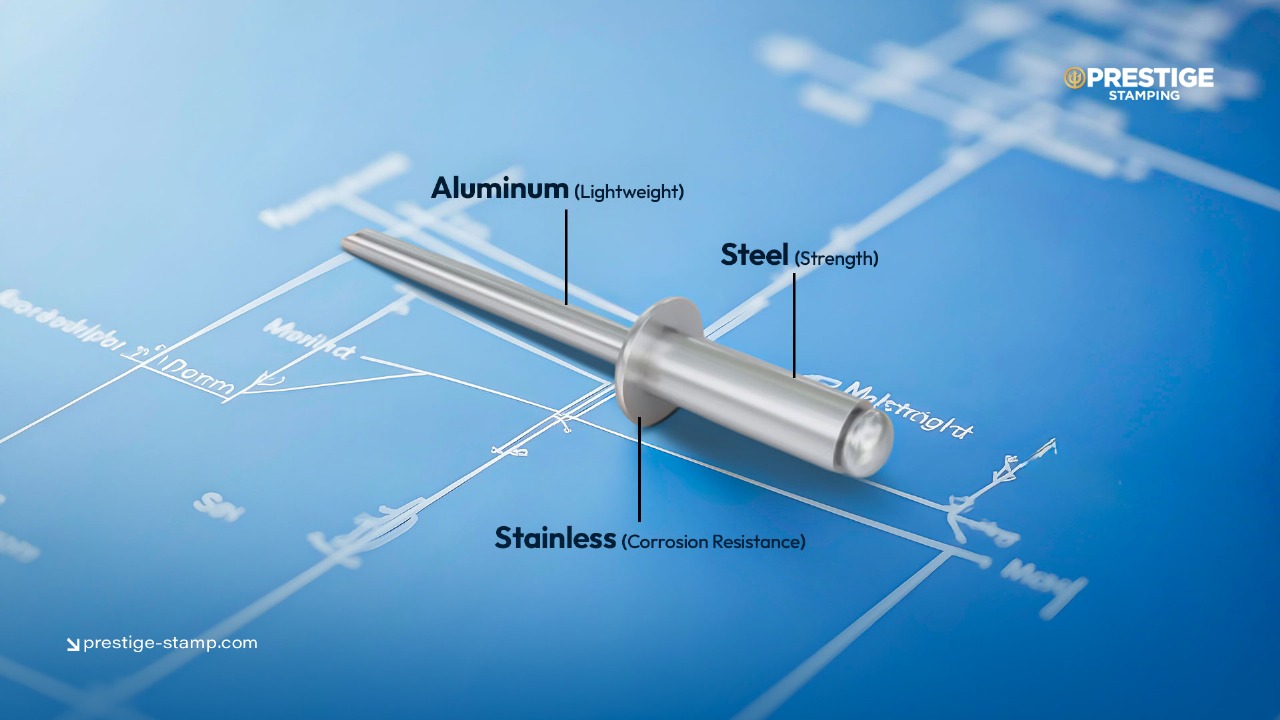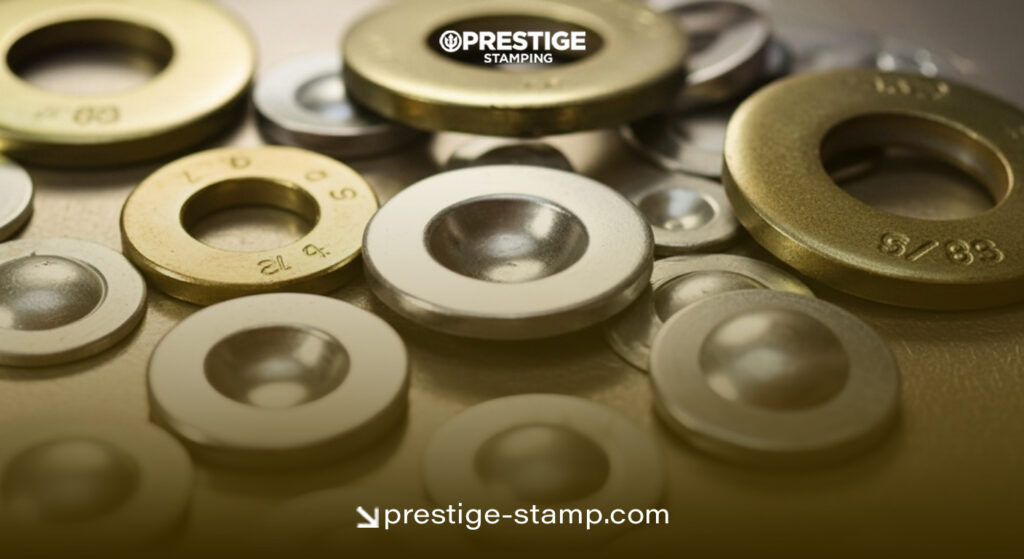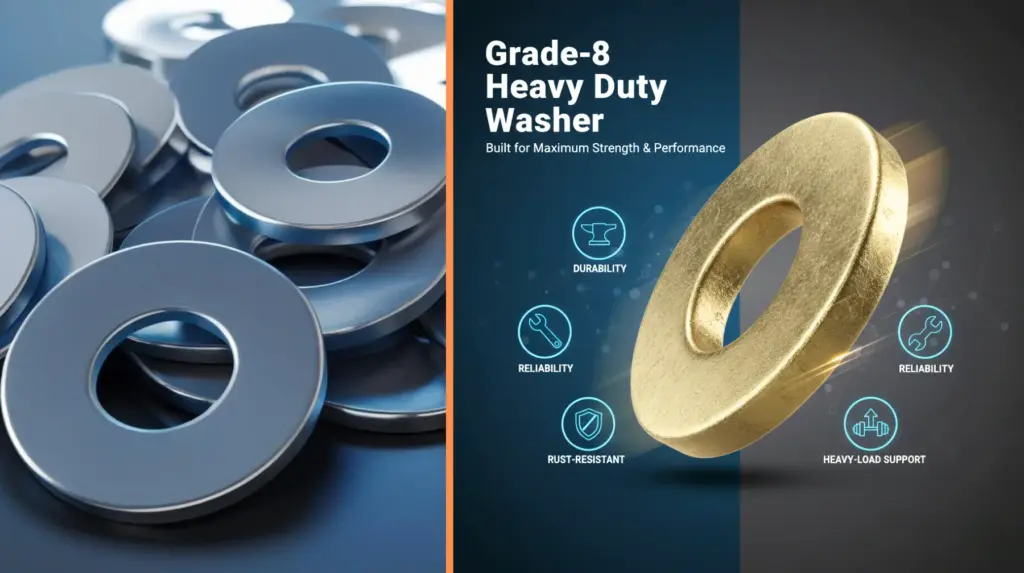In the area of mechanical engineering and fastener manufacturing, hardness is a critical property that determines how well a material resists wear, deformation, and failure under load.
One of the most widely used methods to measure hardness in metals, especially for components like washers, bolts, and screws, is the Rockwell Hardness Test.
In this blog, we’ll explore what Rockwell hardness is, how the testing process works, why it’s important for Grade 8 components like washers, and how it’s applied across different industries.
What Is Rockwell Hardness?
Rockwell Hardness is a standardized method used to determine the hardness of a material by measuring its resistance to indentation. It’s one of the most practical and widely adopted hardness tests due to its speed, accuracy, and ease of use.
The test uses a steel ball or diamond cone (called a “brale”) that is pressed into the surface of the material with a specific force. The depth of the indentation is then measured and converted into a Rockwell Hardness number.
There are multiple Rockwell scales (A, B, C, etc.), but the Rockwell C scale (R/C) is commonly used for hardened steel components, such as Grade 8 washers.
The Rockwell C Hardness Test Process (R/C 38–45)
Here’s a step-by-step breakdown of how the Rockwell C hardness test is typically performed:
- Preparation: The surface of the washer is cleaned and smoothed to eliminate irregularities.
- Preliminary Force (Minor Load): A small preload (typically 10 kgf) is applied to seat the indenter.
- Main Load Applied: An additional load (up to 150 kgf for Rockwell C) is applied, creating a deeper indentation.
- Load Removed: The major load is released, leaving only the minor load in place.
- Measurement: The depth of the permanent indentation is measured. The harder the material, the shallower the indentation—and the higher the Rockwell C value.
- Result: The value is recorded, typically within the range of R/C 38–45 for Grade 8 washers.
This specific range indicates a balance between hardness and toughness, ideal for structural and high-load applications.
Why Rockwell Hardness Testing Matters for Grade 8 Components
Grade 8 fasteners, including washers, are made from medium carbon alloy steel and are heat-treated to achieve high strength and hardness. These components are designed for high-stress applications, and ensuring their hardness falls within a precise range (R/C 38–45) is critical for performance and safety.
Key Reasons for Testing:
- Prevents Deformation: Proper hardness ensures that washers don’t flatten or deform under high clamping forces.
- Resists Wear: Hardened washers resist surface damage from friction or movement.
- Ensures Load Distribution: Maintains the integrity of the joint by evenly spreading the load.
- Meets Industry Standards: Many standards, including SAE J429, require hardness validation for Grade 8 components.
Without accurate hardness testing, these components can fail prematurely, leading to safety risks, equipment damage, and costly downtime.
Applications in Key Industries
Grade 8 components tested for proper Rockwell hardness are essential across several industries that rely on high-performance mechanical assemblies:
Automotive & Heavy Vehicles
Used in suspensions, engine mounts, and structural frames where strength is non-negotiable.
Construction & Infrastructure
Fastening joints in steel structures, bridges, and heavy machinery.
Industrial Equipment
Ensures durability in vibrating machinery and rotating equipment.
Aerospace & Defense
Critical for high-strength fastener systems where failure is not an option.
Railways & Transportation
Used in assemblies subjected to continuous load and vibration.
Final Words
The Rockwell C hardness test is more than a technical requirement—it’s a quality assurance measure that protects lives, assets, and operations. For Grade 8 washers and other critical fasteners, maintaining a hardness range of R/C 38–45 ensures performance, safety, and compliance across demanding applications.
Need a heat-treating facility for your custom parts? Learn more about our heat-treating capabilities here.



